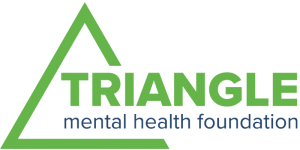We Specialise in Stress Prevention, Mental Exhaustion , Well-being and Resilience Courses
As a result of the COVID-19 pandemic, our in-house course has been temporally suspended and replaced with an online version that exactly mirrors that of our residential course and will continue until social distancing returns to normal.
We provide subsidised and free* Mental Health Courses and Support to individuals. Please click this *Eligibility Criteria link to see if you are eligible.
Follow this link to read the latest news from Triangle Foundation Foundation
Stress and Mental Exhaustion
According to the World Health Organization (WHO), occupational exhaustion is a syndrome resulting from chronic work-related stress, with symptoms characterized by “feelings of energy depletion or exhaustion; increased mental distance from one’s job, or feelings of negativism or cynicism related to one’s job; and reduced professional efficacy.”
In today’s fast-paced environment and especially with the current circumstances surrounding us, people with existing mental health conditions and indeed those without are at risk of becoming mentally and physically burned out over time.
This article will explore and explain some of the signs and symptoms associated with burnout and suggest some ways to counteract these effects.
It’s vitally important that if you do notice signs of burnout within yourself, that you take steps to change the cause of them to avoid further stress and worsening of symptoms down the line.
According to Psychology Today. Exhaustion is defined as “A state of emotional, mental, and often physical exhaustion brought on by prolonged or repeated stress. Though it’s most often caused by problems at work, it can also appear in other areas of life, such as parenting, caretaking, or romantic relationships”
As the lines between our work and home lives have become more blurred during these uncertain times, burnout in a more general sense has become more widespread.
If constant stress in your work or personal life has you feeling helpless, disillusioned, and completely exhausted, you may be on the road to burnout. The earlier you recognize the following signs the more chance you have of avoiding or reversing it altogether.
Here are some of the signs that burnout is taking hold. Some people may present all of these symptoms or just one or two and they may also vary in severity from person to person:
Chronic fatigue
Chronic fatigue is your body’s way of telling you it has had enough and to take some rest, relaxation or a step back from the responsibilities which threaten to exhaust you further. Extreme fatigue can be debilitating, disheartening and lead to a host of other illnesses.
Insomnia
Insomnia seems counterproductive. If your body and mind are exhausted, why would you not be able to sleep? In fact, as anxiety over our worries and responsibilities rise, this can also override healthy sleep patterns – even though you may feel physically and mentally exhausted.
Impaired Concentration, Attention & Forgetfulness
Having a lot of things on your mind can affect your concentration and attention and cause you to forget things. Juggling more responsibilities than you can cope with at any time means that you are more likely to forget things, or they will all come crashing down eventually.
Physical Symptoms
Physical symptoms can include muscle pain, headaches, increased pain from an existing injury or general unexplained aches and pains. Stress causes your muscles to tighten and if you are constantly carrying all the tension from this in your body, it will cause lasting pain. Along with these symptoms you may experience stomach problems (read more about the connection between mental health and gut health here)
Increased Illness
Stress will lower your immune system over a prolonged period and means you will be more susceptible to illnesses, coughs, colds, high blood pressure, unhealthy weight gain or loss, amongst other things.
Loss of Appetite or Comfort Eating
Stress and worry can cause a loss of appetite or an increase in comfort or “convenience” food consumption – neither of which is healthy for the body and mind long-term.
Anxiety and Anxiety-Based Depression
An individual who already suffers from anxiety or anxiety-based depression is most likely to notice an exacerbation in symptoms when they are put under a period of relentless stress. Even someone who has no history of mental health issues can begin to suffer with anxious and depressive tendencies if they don’t get a break from whatever is causing their stress.
Anger
Anger might sound like a strange symptom of burnout, but anger can emerge when a person feels like they are losing control of their life, wellbeing or what is going on around them. This symptom not only affects the individual but their close family too.
The solutions
The good news is, there are several steps you can take to reduce stress, regain your balance and start to feel hopeful again. Caught early enough, it is entirely possible to reverse and eliminate burnout symptoms and move on with a healthier lifestyle and outlook.
Recognition & Clarity
The most important step in tackling burnout is by recognising the signs and symptoms associated with it and taking actionable steps to find the root cause of them. The chances are you know what it is in your life that is causing the stress, but you need to figure out a way you can gain some space from it.
Re-shift your Focus
Do you tend to focus and worry over the things you can’t control? This can cause high levels of stress. Re-shifting your focus to the things you CAN control will provide you with a sense of security, achievement and order in your life.
Rest
If you are heading for burnout, then it’s most likely that your body is screaming out for some rest. It’s not always as easy as it sounds but taking some time out for your body and mind to heal and rest can work wonders in counteracting the symptoms of burnout.
Practice Saying No
Perhaps one of the biggest reasons we take on too much is because we dislike saying no to others and this often can have the biggest impact on our own lives. Saying no to requests is not always a nice feeling but the alternative is detrimental on our own health and lifestyle.
You might also like to stay in touch with us and receive news of new articles and downloads as we release them, you might like to sign up to receive our newsletter.
| For further information please use this link to Contact us Today Triangle Mental Health Foundation Registered Charity (CIO) in England & Wales Number: 1177171 Office: The Studio 3 Burt Street Cardiff CF10 5FZ We are not a walking centre and see clients strictly by appointment only. Telephone: 0300 030 6171 Calls from landlines and mobile are normally included in call packages and should be charged at local rates. Always consult your GP if you have any concerns about your health. © Triangle Mental Health Foundation 2022 |


